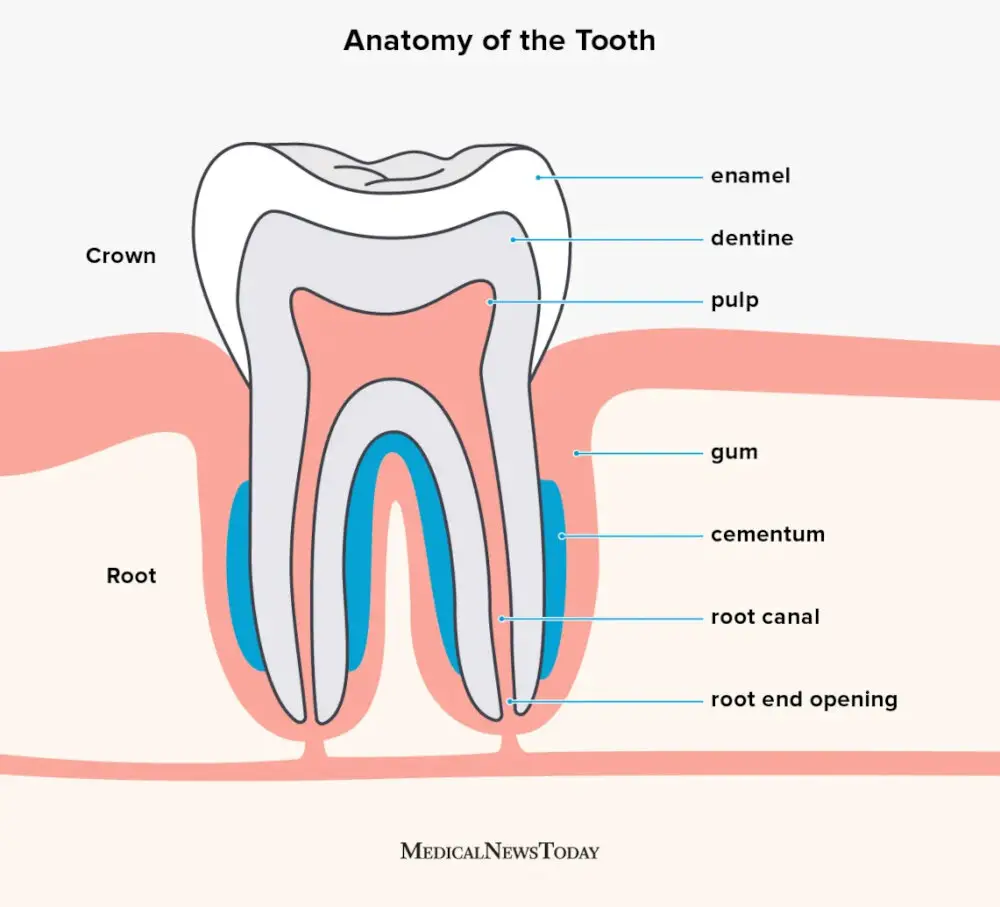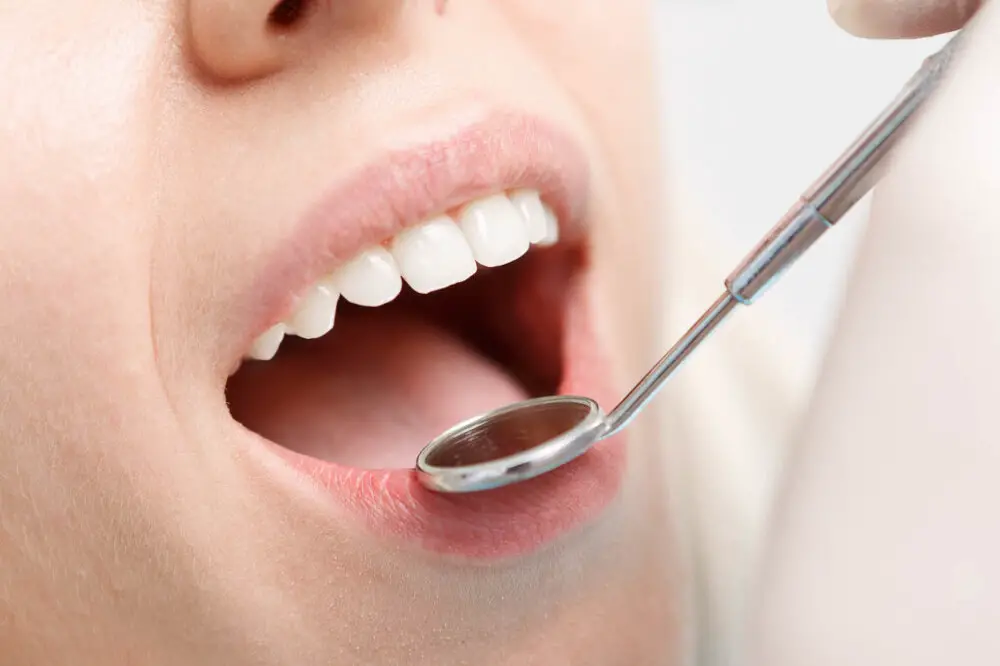Fluoride on Teeth: How Long Does It Last?

Fluoride is a naturally occurring mineral that is known for its ability to strengthen tooth enamel and prevent tooth decay. For this reason, fluoride has been added to toothpaste, mouthwash, and even drinking water in many areas. While the benefits of fluoride are clear, many people may wonder how long the effects of fluoride last on teeth. This is an important question to consider, as it can help individuals make informed decisions about their dental health and determine the best ways to protect and care for their teeth. The duration of fluoride’s effects on teeth can depend on a variety of factors, including the individual’s age, diet, and oral hygiene habits. In general, fluoride can provide a protective effect on teeth for several months after it is applied. However, regular exposure to fluoride is necessary to maintain its benefits, and individuals who are at high risk for tooth decay may need more frequent applications or higher doses of fluoride to achieve optimal protection. Understanding the duration and effectiveness of fluoride on teeth is an important aspect of maintaining good dental health and preventing tooth decay and other oral health problems.
Fluoride is an essential mineral that is naturally present in water and soil. It is also added to toothpaste, mouthwash, and drinking water to help prevent tooth decay. When fluoride is ingested, it becomes incorporated into the tooth structure, making the enamel more resistant to acid attacks. Fluoride also helps to repair early stages of tooth decay by remineralizing the enamel. This mineral has been shown to be highly effective in reducing the incidence of dental caries, especially in children and teenagers. The benefits of fluoride for dental health are numerous and long-lasting, as it helps to strengthen and protect teeth from decay for many years.
It is crucial to understand the duration of fluoride’s effect in the mouth since it helps to determine how often one should apply it to maintain good oral hygiene. Fluoride is a mineral that has been shown to prevent tooth decay by strengthening the enamel, which is the outer layer of the teeth. Knowing how long fluoride lasts in the mouth enables us to develop a suitable oral care routine that includes the use of fluoride toothpaste, mouthwash or other fluoride treatments. This knowledge allows us to make informed decisions about when to reapply fluoride and how often, which can help to prevent cavities and promote healthy teeth and gums. Additionally, it helps to avoid overexposure to fluoride, which can have adverse effects on dental health.
Factors Affecting Fluoride Retention

Fluoride retention is the amount of fluoride that remains in the mouth after using fluoride-containing products. Several factors can affect fluoride retention, such as the type of fluoride product, frequency of use, and individual saliva flow rates. Fluoride toothpaste is the most commonly used fluoride product, and it is recommended to use a small pea-sized amount twice a day for optimal retention. The longer the toothpaste remains in the mouth, the better the fluoride retention. Conversely, mouth rinses containing fluoride have a shorter contact time with the teeth and are less effective in providing long-term fluoride retention. The frequency of fluoride product use also plays a significant role in fluoride retention. Regular use of fluoride products, such as toothpaste, mouth rinses, and professional fluoride treatments, can increase the amount of fluoride retained in the mouth. However, overuse of fluoride products can lead to a condition called fluorosis, which causes white spots to form on the teeth. Individual saliva flow rates can also affect fluoride retention. People with lower saliva flow rates may have less fluoride retention because saliva helps to distribute fluoride throughout the mouth. Additionally, certain medications can cause dry mouth, which can decrease saliva flow rates and, therefore, decrease fluoride retention.
Fluoride treatment is a common preventive measure to reduce the risk of tooth decay. There are two types of fluoride treatments: topical and systemic. Topical fluoride treatments are applied directly to the teeth through gels, varnishes, or toothpaste. These treatments provide immediate protection to the tooth surface and can last for several months. Systemic fluoride treatments, on the other hand, are ingested through water, supplements, or professionally applied gels. These treatments strengthen teeth from within and can last for several years. While both treatments have their benefits, their effectiveness depends on the individual’s oral health needs. A dentist can help determine which type of fluoride treatment is best suited for each patient.
The concentration of fluoride used is a crucial factor in determining its effectiveness in providing oral health benefits. Fluoride is typically present in toothpaste, mouthwash, and professionally applied treatments in varying concentrations. While high concentrations of fluoride can be effective in preventing cavities, excessive consumption can lead to fluorosis, a condition that causes white spots or streaks on teeth. Therefore, it is important to carefully consider the concentration of fluoride in oral care products and seek professional guidance on the appropriate amount for individual needs. By doing so, individuals can reap the benefits of fluoride without the risk of adverse effects.
The duration of exposure to fluoride plays a critical role in its effectiveness in preventing tooth decay. While fluoride treatments at the dentist’s office can provide immediate benefits, the duration of their effects can vary depending on the individual’s oral hygiene habits and diet. Fluoride toothpaste and mouthwash can also provide long-term benefits, but only if used consistently and correctly. It is essential to note that excessive exposure to fluoride can lead to dental fluorosis, a condition that causes white or brown stains on the teeth. Therefore, it is crucial to use fluoride products in moderation and under the guidance of a dental professional. Overall, the duration of exposure to fluoride is a crucial factor in its effectiveness in preventing tooth decay, and it is essential to balance the benefits with the potential risks.
Saliva flow and pH levels play a crucial role in maintaining oral health. The pH level of saliva should be between 6.5 and 7.5 to prevent demineralization of teeth. Saliva also contains fluoride, which helps to remineralize the teeth and prevent tooth decay. However, if the pH level of saliva drops below 5.5, it can lead to the erosion of tooth enamel. Saliva flow also helps to wash away food particles and bacteria from the mouth, reducing the risk of tooth decay and gum disease. Therefore, maintaining a healthy pH level and sufficient saliva flow is essential for good oral health and the longevity of the fluoride’s benefits on teeth.
Duration of Fluoride Efficacy

Fluoride is a mineral that has been widely used in dentistry to help prevent tooth decay. It works by strengthening the enamel of teeth, making them more resistant to acid attacks from bacteria in the mouth. The duration of fluoride efficacy varies depending on the type of fluoride used and the frequency of exposure. Topical fluoride, such as fluoride toothpaste or mouthwash, can provide protection for up to 24 hours. However, regular use is necessary to maintain this protection. In-office fluoride treatments, such as gels or varnishes applied by a dentist, can provide longer-lasting protection, up to several months. This is because these treatments use a higher concentration of fluoride and are applied directly to the teeth, allowing for deeper penetration into the enamel. However, like with topical fluoride, regular treatments may be necessary to maintain this level of protection. Overall, the length of fluoride efficacy is dependent on the type of fluoride used and its frequency of application. Regular use of fluoride products and professional treatments can help maintain strong, healthy teeth.
Fluoride is a mineral that has been proven to be effective in protecting teeth from decay. It works by strengthening the enamel and making it more resistant to acid attacks from bacteria in the mouth. Research has shown that fluoride can provide protection for teeth for many years after it has been applied. The length of time that fluoride can protect teeth varies depending on the individual, their oral hygiene habits, and the amount of fluoride they are exposed to. However, studies have suggested that the protection provided by fluoride can last for up to 10 years or more. It is important to note that regular dental check-ups and cleanings are still necessary to maintain good oral health, even if fluoride has been applied.
Studies have been conducted over the years to determine the longevity of fluoride effectiveness on teeth. These studies have shown that fluoride can remain effective for decades after initial application. The length of time that fluoride remains effective varies depending on factors such as the concentration of fluoride, the frequency of exposure, and the individual’s oral hygiene habits. Some studies have found that fluoride can continue to provide protection against tooth decay for up to 10 years, while others have reported protection lasting up to 20 years or more. Despite these variations, the evidence overwhelmingly supports the long-term effectiveness of fluoride in preventing tooth decay and promoting overall oral health.
The efficacy of fluoride can be influenced by various factors that can either shorten or lengthen its duration on teeth. These factors include the concentration of fluoride in the product used, the frequency of application, and the person’s age and overall dental health. A higher concentration of fluoride and more frequent application can increase its effectiveness, while low concentrations and infrequent application can reduce its efficacy. Additionally, the age of the individual and their dental health can also impact the duration of fluoride’s effectiveness, with younger individuals and those with better dental health experiencing longer-lasting benefits. Other factors that can affect fluoride’s efficacy include diet, oral hygiene practices, and exposure to other sources of fluoride, such as fluoridated water or dental treatments.
Maintaining Fluoride Levels

Maintaining fluoride levels is crucial for the health of your teeth. Fluoride is a mineral that helps to strengthen tooth enamel and prevent decay. It is found naturally in water and some foods, but it can also be added to toothpaste, mouthwash, and other dental products. The American Dental Association recommends that people of all ages should use fluoride toothpaste twice a day, floss daily, and visit the dentist regularly to maintain optimal fluoride levels. Additionally, some communities have fluoridated water, which can also help maintain fluoride levels. It is important to note that too much fluoride can be harmful, causing tooth discoloration and other dental problems. This is why it is essential to follow the recommended guidelines for fluoride use and to speak with your dentist if you have any concerns. Maintaining proper fluoride levels can help prevent tooth decay, reduce the need for dental procedures, and ultimately save you time and money in the long run. By taking care of your teeth and maintaining healthy fluoride levels, you can enjoy a bright, healthy smile for years to come.
Regular fluoride maintenance is crucial for maintaining good oral health. Fluoride is a naturally occurring mineral that helps strengthen tooth enamel and prevent tooth decay. It is essential to maintain adequate levels of fluoride in the mouth to ensure that teeth remain healthy and strong. Fluoride treatment should be carried out by a dentist or dental hygienist at regular intervals, as the effects of fluoride wear off over time. Failure to maintain adequate fluoride levels can lead to a range of dental problems, including cavities, gum disease, and tooth loss. Therefore, it is essential to incorporate regular fluoride maintenance into your oral hygiene routine to protect your teeth and maintain good dental health.
Fluoride treatments are an essential part of maintaining good oral health, and they are recommended for people of all ages. Children between the ages of six months and 16 years are the most susceptible to tooth decay, and fluoride treatments can help prevent cavities from forming. For infants, fluoride supplements may be recommended if they are not getting enough fluoride from their drinking water. Adults can also benefit from fluoride treatments, especially those who are at high risk for tooth decay. This includes people with dry mouth, gum disease, or a history of frequent cavities. In general, fluoride treatments are safe and effective, and they can help reduce the need for more invasive dental procedures down the line.
Home care fluoride products are a crucial component of maintaining optimal oral health. Fluoride helps to strengthen teeth by remineralizing enamel and preventing decay. It is found in toothpaste, mouthwash, and even food and water. Using fluoride toothpaste twice a day and rinsing with a fluoride mouthwash daily can significantly reduce the risk of cavities. However, it is important to use these products correctly and in moderation as excessive fluoride intake can lead to dental fluorosis. Dentists may also recommend professional fluoride treatments for individuals at high risk for cavities. Overall, incorporating home care fluoride products into your daily oral hygiene routine can help to ensure a healthy and strong smile.
Fluoride is an essential mineral that plays a crucial role in maintaining dental health. It helps to strengthen the tooth enamel, making it more resistant to decay and cavities. Fluoride is present in many toothpaste, mouthwash, and even tap water. Regular use of fluoride-containing products can significantly reduce the risk of tooth decay and maintain healthy teeth. It is especially important for children to receive adequate fluoride to ensure the proper development of their teeth. While the benefits of fluoride are well-established, it is also important to note that excessive fluoride intake can lead to fluorosis, a condition that causes discoloration and pitting of the tooth enamel. Therefore, it’s essential to follow the recommended guidelines for fluoride use to reap its benefits without any adverse effects.
Several factors can affect the retention and efficacy of fluoride on teeth. The frequency and amount of fluoride exposure, the type of fluoride product used, the individual’s oral hygiene habits, and the presence of other substances in the oral cavity can all impact the effectiveness of fluoride treatment. Fluoride is most effective when it remains in contact with the teeth for an extended period, which can be achieved through regular use of fluoride toothpaste, mouthwash, or professional fluoride treatments. However, excessive fluoride consumption can lead to dental fluorosis, a condition that causes discoloration and weakening of the teeth. Thus, the appropriate use and monitoring of fluoride exposure are important for maintaining optimal oral health.
Maintaining optimal fluoride levels in the mouth is crucial for maintaining good oral health. Fluoride helps to strengthen tooth enamel, making it more resistant to decay and erosion. It also helps to remineralize areas of the enamel that have been weakened by acid attacks. Without enough fluoride, teeth are more susceptible to cavities and other dental problems. On the other hand, excessive fluoride can lead to dental fluorosis, which causes white or brown spots to appear on the teeth. Therefore, it is important to use fluoride toothpaste and mouthwash in the right amounts and to monitor fluoride levels in drinking water to ensure that the optimal level is maintained for healthy teeth.
Conclusion

In conclusion, fluoride is an essential mineral that helps to prevent tooth decay and strengthen teeth enamel. When fluoride is applied to the teeth, it can last for several hours, but its beneficial effects can last for much longer. The duration of fluoride’s effectiveness depends on various factors such as the concentration of fluoride used, the frequency of its application, and the individual’s oral hygiene practices. While fluoride can provide significant benefits to dental health, it is crucial to use it appropriately, as excessive fluoride consumption may lead to negative health outcomes. Therefore, it is essential to consult a dental professional to determine the appropriate use of fluoride and ensure optimal oral health.







